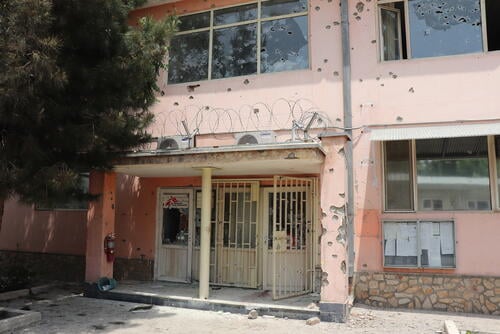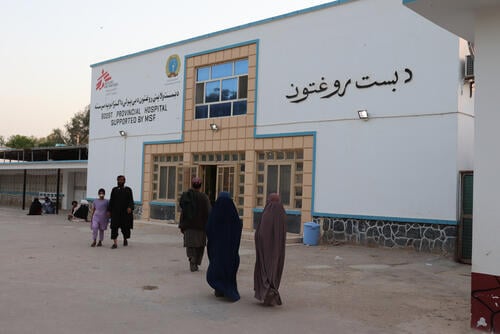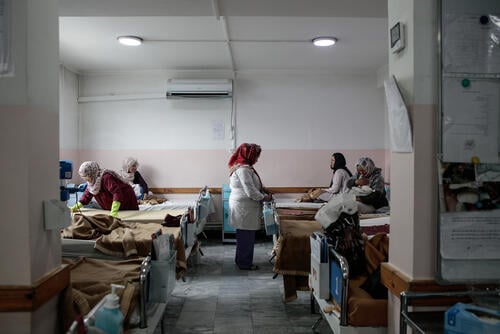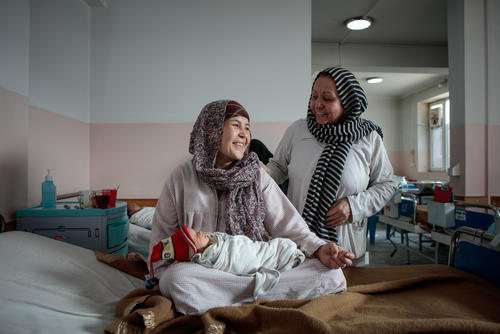In the days following the attack on the Médecins Sans Frontières (MSF)-supported Dasht-e-Barchi hospital in Kabul, Afghanistan, it has become clear that what happened on 12 May was a deliberate assault on a maternity hospital with the purpose of killing mothers in cold blood.
“I went back the day after the attack and what I saw in the maternity hospital demonstrates it was a systematic shooting of the mothers,” says Frederic Bonnot, MSF’s head of programmes in Afghanistan.
“They went through the rooms in the maternity, shooting women in their beds. It was methodical. Walls sprayed with bullets, blood on the floors in the rooms, vehicles burnt out and windows shot through.”
I went back the day after the attack and what I saw in the maternity hospital demonstrates it was a systematic shooting of the mothers. They went through the rooms in the maternity, shooting women in their beds.Frederic Bonnot, MSF head of programmes in Afghanistan
Official numbers indicate that 24 people were killed and at least 20 more injured, a large majority of them patients. We are able to confirm that 26 mothers were hospitalised at the time of the attack.
While 10 of them managed to find shelter in safe rooms, along with many health workers, not one of the 16 mothers who remained exposed to the attack was spared. Eleven were killed; three of them in the delivery room with their unborn babies. Five others were injured.
Among the dead are two young boys and an MSF midwife from Afghanistan. Two newborn babies were wounded, one of whom was transferred to another hospital for emergency surgery after being shot in the leg, as well as three Afghan MSF staff.
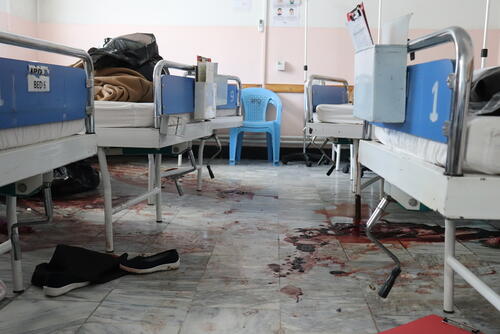
The attackers, whose overall number is as yet unknown, stormed the hospital through the main gate a little after 10am. There were other buildings and wards closer to the entrance, but according to MSF staff present at the moment of the attack, the assailants moved straight to the maternity ward, which has been supported by MSF for the past six years.
What ensued was four hours of hell – that is how long the attack lasted, while patients and staff alike looked for shelter.
“During the attack, from the safe room, we heard shooting everywhere and explosions too,” says Bonnot. “It’s shocking. We know this area has suffered attacks in the past, but no one could believe they would attack a maternity hospital. They came to kill the mothers.”
There were 102 MSF Afghan colleagues working alongside a handful of international staff. In the chaos of the attack, accounting for the patients and the staff present in the hospital became extremely difficult, as people were running for their safety and many others were hastily referred to other hospitals.
“This country is sadly used to seeing horrific events,” says Bonnot. “But what happened Tuesday is beyond words.”
MSF first started working in Afghanistan in 1980, but was absent from the country between 2004 and 2009 after the killing of five staff in Badghis province. In 2019, MSF had seven projects in six provinces of the country and undertook more than 100,000 outpatient consultations, assisted more than 60,000 deliveries and performed almost 10,000 surgical interventions. For our work in Afghanistan, MSF does not accept funding from any government. Instead, the organisation relies entirely on donations from the public.



